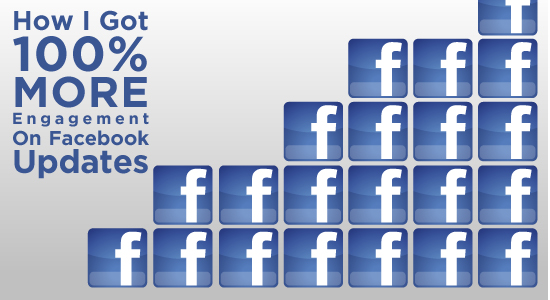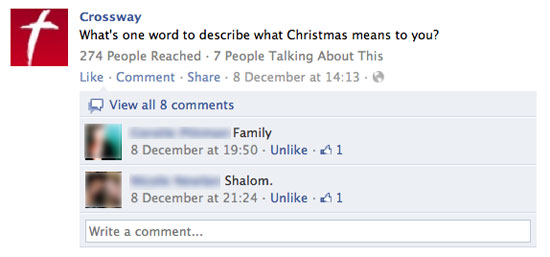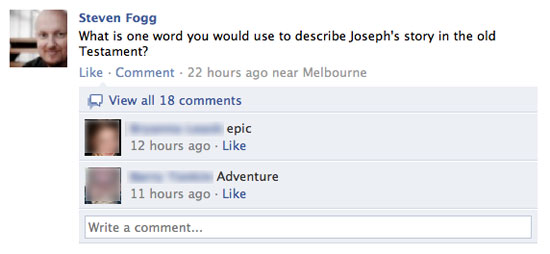I attended a brilliant online free seminar last week hosted by Darren Rowse, Facebook expert Amy Porterfield and Lewis Howes about improving your Facebook marketing. Normally these types of ‘free’ seminars make hyperbolic claims in their marketing and I run a million miles in the opposite direction, rolling my eyes and tut-tutting all the way back into the depths of my office. But this one didn’t. It seemed quite sensible in the claims in their marketing.
To be honest. I trust Darren. After being attending a few of his events and having bought a few of his books I now know that you can be assured that his projects will deliver what they claim to offer. Unlike many Probloggers, Darren is thankfully free of over-promising and comes across as a really honest guy that knows quite a bit about the online space.
Man-crush over and done with. Back to the topic at hand.
One of the biggest takeaway’s for me from the seminar (There were at least eight others that I will blog about at a later stage) was a great insight Amy made about how people use Facebook. She said that people scan timelines and don’t tend to engage deeply or at length, but rather they generally leave brief comments on statuses.
With that in mind Amy said that you can increase people’s engagement with your brand/business/organisation if you make it easy for them to respond.
Ask for a one word answer
One way you can make it easy for people to respond is to ask them to give you a one word answer. One tip Darren made was that you have to keep the question open-ended which will broaden the response. Here are some examples:
‘What’s one word to describe…’
‘What’s one word you would use to sum up…’
Here is one post that I did on a Facebook page I manage
Here is one example of how I tested it on my own personal Facebook page which just keeps on going and going:
Asking for very short answers will definitely increase engagement on your Facebook page (There is no doubt that asking the right kind of questions helps too!).
Tell people to how to respond
Amy and Darren didn’t talk about this. But this has been a suspicion of mine for some time. I thought about how I could make it easy for people to respond so I thought I would test actually gently directing people how to respond. So in some posts I asked them to “click like” and you know what? It worked. There was a significant increase in engagement.
Now the post below was a bit late going up the week after Thanksgiving. We don’t even celebrate Thanksgiving here in Australia, but I think some of the good will was flying around and was rubbing off on the Australian’s on the Facebook page. It even got people commenting what they were thankful for.
Are these principles applicable on other social media platforms?
I’ve tried it on my Twitter feed and haven’t really seen an increased response. I haven’t even bothered trying it on my Google+ feed as the interaction there currently is like a ghost town. Strike that. I’ve just posted a question. Lets see how it does 😉
Why engagement matters
Increased engagement matters for a number of reasons depending on what your business or organisation does. However, one principle that is applicable to everyone is that by increasing your engagement with your Facebook fans means that your message or your brand will be seen by more eyes which may lead more people liking your page or interacting with your organisation directly.
These are two ridiculously easy ways to increase engagement on your Facebook page (BTW Here is my blog’s Facebook page). But I’m sure there are other tactics that you can use. What strategies do you use? I’d love to hear from you! Comment below.
(Update: The traffic on this post has gone off the charts. Could you take a moment to RT this for me. People all over are finding this so useful, thanks!)









